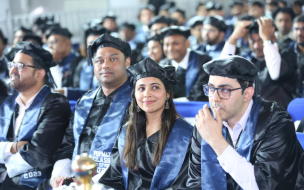Right now, you have access to the basic tools required for the GMAT. You can review the limited number of tested topics on the GMAC website (where you can also download practice tests), but you may feel that even after reading the official exam guide, you still aren't achieving your target GMAT score. When this occurs, it may seem logical that those students with higher marks are perhaps doing something you aren't. How do they prepare? What are their secret techniques? Here are several possibilities:
1. Strategies
Students who study for the GMAT typically learn to utilize non-content strategies. For instance, they may begin their mathematics sections with lessons on selecting specific numbers for variables and using answer choices to answer the questions. Good test-takers utilize such strategies from time to time – always on some types of problems, or as a last resort on others. But when it comes time to employ a strategy, either due to desire or necessity, a decent test-taker often fumbles, attempting to remember exactly how it works, where to write what information, etc.
What's the secret? The savvy test-taker drills his or her strategies. In fact, he or she will complete whole problem sets via just choosing specific numbers, even if he or she understands the algebra. Why? This sharpens all involved skills. When he has to or opts to rely on the strategy, he or she does so accurately and quickly. Remember, it's a test about deriving the correct answer swiftly, not doing the best algebra.
2. Practice
In general, anyone who hopes to score well on the GMAT will engage in some form of review and will complete a number of sample problems. Many of these problems can be located in the official guide, others are available in test preparation booklets, and some are online. These problem sets are important because they enable test-takers to master tested concepts. But after finishing a multitude of problems, the majority of individuals who sit for the test don't do well.
What's the secret? High scorers simulate testing conditions as closely as possible. Learning content is often simpler when working out of a physical book, and taking time to absorb said concepts is important. Once you understand the material, timing is key. As soon as possible, questions and problem sets should be timed, even if the timing starts out more generously than the test allows and becomes tighter and tighter. And time is not the only factor that unsettles students during the actual test. The exam is on a computer, and this requires a different approach to test-taking. Therefore, as soon as possible, forego hard-copy books and complete problems digitally. When taking practice tests, high scorers include the Integrated Reasoning section and essay to build stamina and prevent surprises on the important day. Mimic the experience of the test as often and as closely as possible.
3. Review
When you complete practice tests and work through problem sets, a good deal of time is naturally devoted to determining what was answered incorrectly. This is a wonderful method to see what mistakes you are making and what you still need to focus on. But, beyond that, how else can you improve?
What's the secret? Those who earn high marks review not only incorrect answers, but correct ones as well. Many questions that you answered correctly may have taken too long. Alternate strategies and different mathematical methods of approaching problems may be better utilized in a number of situations. And there are likely answers that you guessed on – determine why they were actually right and eliminate the guesswork. Even if, and especially if, you aren't getting many wrong in practice, there is value in reviewing everything.
4. Resources
Each test-taker is different. Select individuals are able to derive precisely the aid they require out of books alone, even ones for “dummies.” Other students must have the structure of a tutor or a study companion. It makes sense to learn about the test the best way you can. But then, questions on the exam can still be unfamiliar or confusing.
What's the secret? The best students use multiple types of resources. A private tutor, for instance, can help explain problems that a test preparation book might not be doing a satisfactory job of clarifying by itself. Excellent GMAT scorers aren't satisfied with just one way of approaching items, but, instead, try to absorb information from as many sources as possible. There are seemingly unlimited resources out there. Why not take advantage?
The secrets of the GMAT elite aren't really secrets at all. It boils down to preparation. Regardless of your natural abilities, scores can be improved and goals reached if you apply the effort. To do this, you must be willing to devote the time to doing more than the minimum. If you commit in a smart, efficient way, there will be one final piece of information you won't want to keep secret: your high GMAT score.
Toby Blackwell is a professional GMAT tutor and contributing writer for Varsity Tutors. He graduated with honors and received his Bachelor’s degree from Harvard University. He scored a 770 on the GMAT.
RECAPTHA :
30
8e
f1
ba







